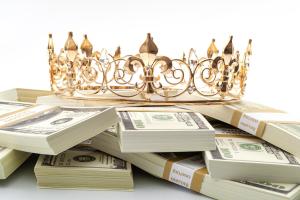
It is often said that cash is king. In the investment world this usually means securities that pay you a regular dividend or interest are favorable. But like any strategy, it can often fall out of favor. High-flying growth stocks, which get the lion’s share of media attention, don’t typically pay much of a dividend - if any. For example, Tesla and Nvidia, two of the largest growth stocks in the S&P 500, pay no dividend. If you are to receive any financial gain from owning these stocks at all, it will have to come from the share price appreciating.
One of the most common misconceptions about dividends is the fact they are not determined by the value of the security, but by the number of shares you own. This is because for so many of us, our only experience with dividends or interest is through our bank accounts. When your bank pays you interest on your checking or savings account the rate is based on your current balance. For example, if the interest rate is 1% and you have $10,000 in your account you will receive $100 in interest. If your balance drops to $9,000 the interest will be $90. But stocks “declare” dividends per share. So, if a hypothetical stock pays $0.10 per share and you own 10,000 shares, you will receive $100 as a dividend payment. If your stock price declines, that has no bearing on the number of shares you own, so your dividend payment stays the same.
When you look at your brokerage statement, you’ll notice that the document may state a “dividend yield.” This is calculated by dividing the dividend payment by the share price. So, let’s say our stock is trading at $10 per share. If it declares $0.10 per share, then then the yield is 1% (0.10/10). This is to help people conceptualize the dividend and make it easier to compare to other investments. If the share price declines and the dividend per share stays the same, then your yield (which is just a mathematical expression equal to the dividend divided by the share price) will actually go up!
One analogy I think useful when thinking about dividends is that of a real estate investment: if you purchase a three-family home and are collecting rents, the state of the real estate market should have no bearing on what that rent should be. If you are charging $1,000 per month for each unit, your rents don’t get lowered because the value of the property has declined.
It is true that any one company can cut its dividend. General Electric famously slashed its dividend in 2009 from $1.24 to $0.82 per share and by 2018 the dividend sat at just $0.01 per share! This is a serious risk if your main reason for buying a stock is for the dividend. To hedge against this risk, the tried-and-true strategy of diversification is the best way to go. There are many mutual funds and exchange traded funds (ETFs) that focus on dividend paying stocks, making the risk of dividend cuts far lower.